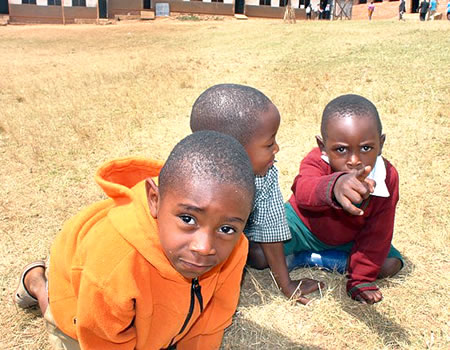Oyo State government in conjunction with the World Bank has flagged off a five-year project to stem stunting in children and other nutrition issues in the state.
Executive director, Oyo State Primary Health Care Board, Dr Lanre Abass, at a sensitisation meeting on the project, Accelerating Nutrition Results in Nigeria (ANRiN), stated that the project would be a pivot to reach people, especially children, with quality, cost-effective nutrition services in the state.
He said the state government had approved its participation in this project that is ongoing in 11 states in Nigeria given the importance of nutrition to children.
Ganduje signs Emirs’ appointment and deposition amendment bill into law
Dr Abass who declared that 15 per cent of children in the state was currently not eating adequately, stressed that eating adequately the right type of food is very important, especially for children.
Oyo state project coordinator for ANRiN project, Dr Kahijat Alarape, said Oyo State was selected for the project based on its stunting prevalence put at 23 per cent.
She declared that Oyo State’s stunting, wasting and underweight prevalences, all nutritional indicators, were higher than the World Health Organisation’s acceptable standards.
Dr Alarape said the project will be offering seven nutrition services for free in the community and at the health facilities, including, vitamin A supplementation and worming; iron/folic supplementation for pregnant women, zinc and oral rehydration solution for diarrhoea treatment and micronutrient powder to improve quality of complementary feeds.
ANRiN’s task team head at the World Bank, Sangeeta Carol Pinto, stated that nutrition is no longer a food issue, but an investment issue.
According to her, there is enough evidence to show that an investment in nutrition builds human capital and boosts shared prosperity.
Pinto stated that damages to the brain are irreversible if investment into nutrition is not adequate during the first 1000 days window period from conception to two years of age in any child.
According to her, “Everything that we do after two years of age is more expensive; it doesn’t give you the required impact.
”A child who is well nourished survives and has improved chances of school completion by one year; improved chances of earning five to 50 per cent more than his stunted pair, escape poverty by more than 33 per cent and contributes to the growth of the nation by four to 11 per cent,” she declared.
She assured that ANRiN’s nutrition-specific interventions are at absolutely low cost but can cause maximum impact when a child is caught before he becomes malnourished.
“When you do the cost analysis, intervening after the child is malnourished is more expensive than preventive actions,” she declared.






